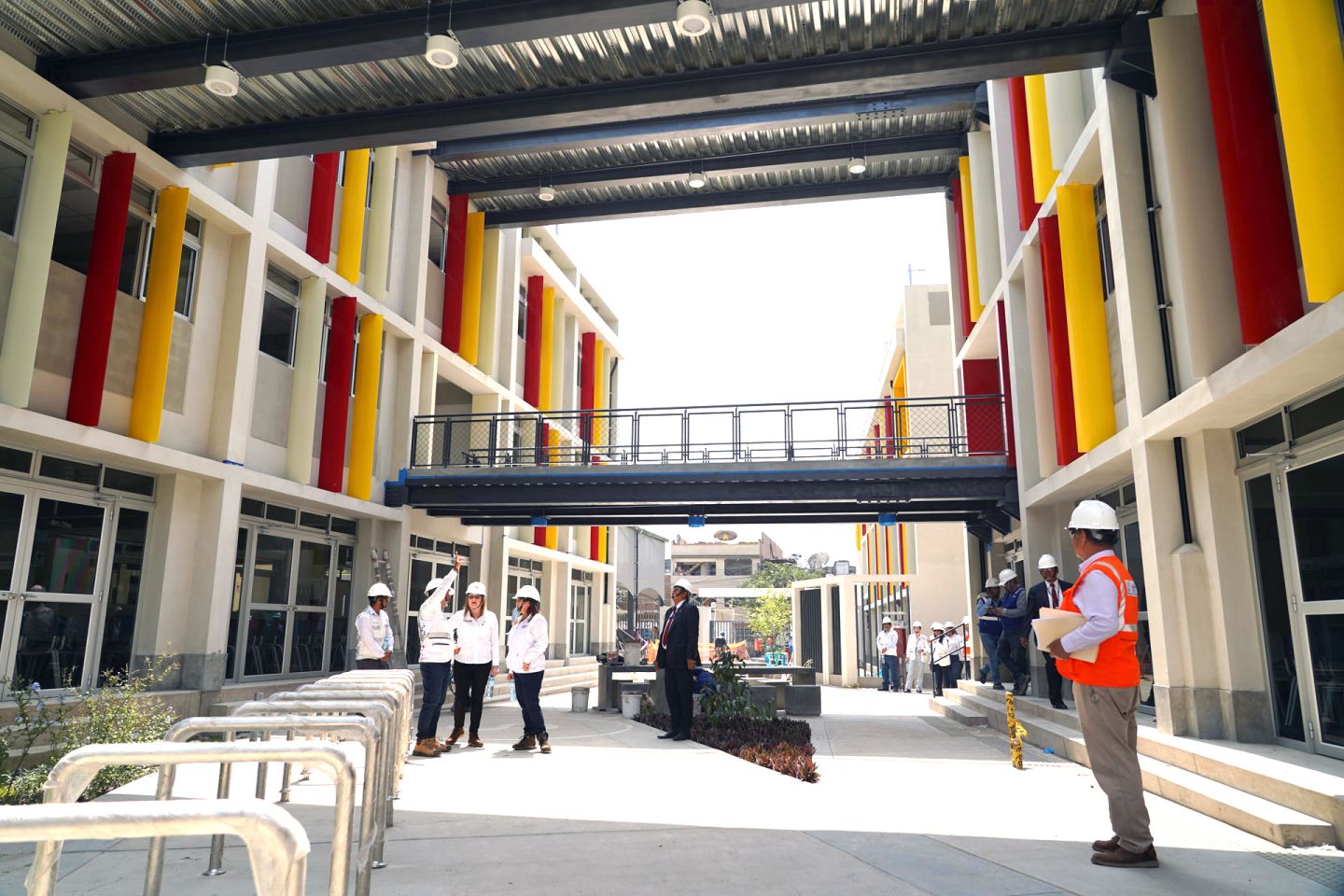Peru's Educational Transformation: Implementing 75 Pilot Schools with International Collaboration
In 2018, the Peruvian Ministry of Education launched the Bicentenary Schools program, a bold initiative aimed at transforming the country’s school infrastructure. Lahdelma & Mahlamäki architects was part of the British-Finnish consortium, which worked with Peruvian officials and companies to manage the project and implement 75 new schools around the country for safe and improved learning.
Project background
The Bicentenary Schools program in Peru was initiated by the Peruvian Ministry of Education in 2018 to address the inadequate and risky condition of many schools in the country. This applied to over 60% of schools and concerned some 3 million students. As part of the program aimed at improving both the school infrastructure and school system as well as reducing risks, the "First International Competition of Architectural Preliminary Projects for Modular Catalogues: Peru School" was launched, resulting in the creation of modular construction catalogues based on five different bioclimatic zones in Peru.
To implement the Bicentenary Schools, the Peruvian Ministry of Education selected 75 schools for a pilot program and entered into a Government-to-Government agreement in November 2021 with the United Kingdom and Finland. The agreement allowed for collaboration between Peruvian officials, local companies and foreign specialist organizations to manage school projects with efficiency, speed, and transparency of high international standards. The British-Finnish consortium Koulu, meaning "school" in Finnish, was involved in providing specialized advisory and support services for the project. The consortium, consisting of British companies Mace, Gleeds, Arup, 4 Global, and Finnish companies LMA, Polar Partners, ISKU, and Afry, played a lead role in, e.g., project management, design optimization, procurement strategy, and developing Building Information Modelling (BIM) methodology.
LMA in leading role
As part of the Koulu consortium, LMA’s involvement in the project focused on the design optimization, innovation, and improvement phase, as well as the design and implementation of the 75 schools. During the design optimization phase, from June 2022 to May 2023, LMA worked closely with the Technical Assurance team to review and optimize the existing modular catalogues, incorporating design innovations and improvements specific to each bioclimatic zone. LMA also contributed to the development of design guidelines and specifications, ensuring that the schools were sustainable, resilient to natural hazards and climate change, inclusive and child-friendly, and provided improved educational environments. Improving pedagogy and community engagement were some of the main priorities of the programme. The program introduced improvements such as community use outside school hours, outdoor learning and flexible learning spaces with multi-purpose furniture to help students become active learners.
In the design and implementation phase, from June 2022 to December 2023, LMA provided support and guidance to both the local design-build contractors and the technical team of the client. This involved, e.g., participating in design workshops, reviewing the general design of all the schools, and conducting detailed reviews of the more challenging schools. LMA's expertise in architecture and technical assurance ensured that the design innovations and guiding principles of the project were effectively implemented in the school designs. Additionally, LMA actively contributed to knowledge transfer activities, sharing their expertise with local architects and other members of the technical team to ensure the legacy of ongoing learning and development.
First schools already completed
A major milestone in the project was reached in March 2024, when the first four pilot schools were completed and handed over. The four schools, IE Nuestra Señora de la Visitacion, IE Jose de la Torre Ugarte, IE San Felipe and IE Jorge Basadre Grohmann are all located in Lima metropolitan area, belong to the Desert Coast bioclimatic zone. The schools have a gross area of between 6000 and 8000 sqm and house up to three different education levels: kindergarten, primary school, and secondary school. In line with the guiding principles of the program, the schools and have been designed to be sustainable, resilient, and provide improved educational environments. The successful completion and handover of these pilot schools mark an important milestone in the Bicentenary Schools program, setting the stage for the delivery of the remaining schools and the overall transformation of educational infrastructure in Peru.
